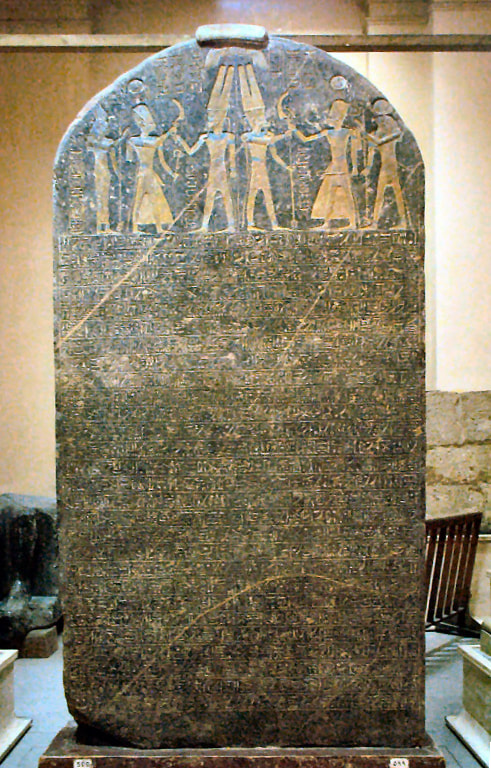|
Tomorrow is Christmas Eve which means we have two more posts to go. Today is perhaps my favorite archaeological discovery that illuminates the context of the Bible, the Merneptah Stele. Discovered in Thebes by Sir Flinders Petrie, the father of Egyptology, the Merneptah Stele is a large stone monument describing the campaigns and victories of the Nineteenth Dynasty Egyptian Pharaoh during his reign between 1213 – 1204 BCE. Among his exploits against the Libyans, the stele mentions several Canaanite nations which Merneptah claimed to subdue. The way that Egyptian Hieroglyphics designates these nations is with something called a “determinative.” We use these all of the time in English, for example: if I am writing something and I want to let the reader know that I want to convey an amount of currency I use the “$” determinative. This way the reader knows that they number following the “$” is a currency. Egyptian Hieroglyphics does the same thing just more frequently in its language. In line 27 of the stele, along with a list of Canaanite nations, it mentions the name “Israel.” The full line says “and Israel is laid to waste, its seed is not.” If there were any doubt that this "Israel" was anything other than a people group, the determinative for ethnic group is used after the word, “Israel” spelled out in hieroglyphics.
This is the earliest reference to the Israelites in the archaeological record and it is written during the time of an Egyptian Pharaoh, Merneptah, who was the successor to Rameses the Great, one of the assumed Pharaohs of the Exodus. This also dates to the time of the emergence of the Israelites in the land. The Conquest of the Promise Land has been debated by archaeologists for decades. However, there has to be some historicity to the emergence of Israel into the land of Canaan based on this evidence. Because of what this discovery brings to the Origins of Israel debate, I give this number two in our countdown. See you tomorrow for Christmas Even and number 1 in our countdown of most significant archaeological discoveries in biblical studies.
0 Comments
Leave a Reply. |
Archives
June 2021
Categories
All
|

 RSS Feed
RSS Feed